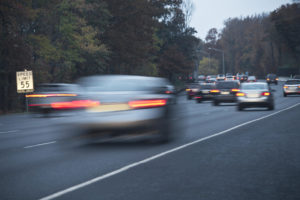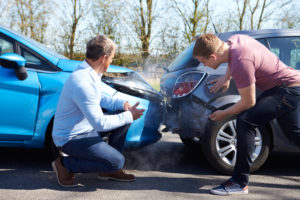 All Entries Tagged With: "social security disability"
All Entries Tagged With: "social security disability"
4TH OF JULY – RISKS AND SAFETY TIPS

Fourth of July is the celebration of the United State’s independence day. According to forecasts by the National Safety Council, an estimated 409 people will be killed due to car accidents on Independence Day weekend; another 49,000 will be injured. Holidays are some of the most dangerous days for drivers because more people are off work, consuming alcohol and driving further and longer.
There is an average 37% increase in highway fatalities on July 4th, compared to the average day in July. According to AAA, approximately 42 million Americans will be traveling to celebrate the fourth of July. More than 85% of people will be driving to their fourth of July destination, an average of 50 miles from home. An estimated 3.2 million people will be flying to their fourth of July destination.
Preventing Injuries:
Car Accidents
Fourth of July is one of the deadliest American holidays for drivers. Other than Memorial Day weekend is comparable to the number of injuries and risk. Since most students are home and out of school for the summer, and the sun is coming out more, families are more likely to go on trips for this holiday.
Fireworks
Fourth of July is known for massive fireworks displays all over the country. According to the Consumer Product Safety Commission, thousands of people are injured each year from fireworks-related injuries. An average of 10 people are killed each year due to fireworks displays going wrong. Here are some safety tips from the National Council on Fireworks Safety:
- Alcohol and fireworks do not mix. Save your alcohol for after the show.
- Only light one firework at a time and remember to stay at a safe distance
- Have a bucket of water and access to a water hose in case sparks start a fire
- Never experiment with homemade fireworks
- Wear safety glasses when shoot fireworks
SPEEDING – STATISTICS AND CONSEQUENCES

Speeding is one of the most prevalent causes of traffic crashes at a severe cost. According to data gathered by the National Highway Traffic Safety Administration, an estimated 30% of all fatal crashes in 2012 were due to speeding. For 2012, 30% of all fatal crashes equals 10,219 lives were lost that year due to speeding-related crashes. Speeding-related fatalities have decreased over the past decade.
Speeding Statistics
According to data from the National Center for Statistics and Analysis, men ages 15-20 are involved in over 37% of all fatal crashes attributed to speeding. Men 21-24 also represented 37% of total fatal crashes. Alcohol use, when combined with speeding, can dramatically increase the possibility of accident and death. In 2012 over 42% of all speeding drivers had a blood alcohol concentration (BAC) of higher than the legal limit.
Consequences in Rhode Island
Each state is different with how they punish drivers who are caught speeding. Most traffic violations including not using a turn signal or eluding a traffic light will get you a fine of $75. Speeding tickets are considered more dangerous. If you are caught driving 10 miles over the posted speed limit you can be fined $85, 11 miles or more over the speed limit costs a minimum of $195 with a $10 increase for each mile over. Auto insurance rate can increase if you plead guilty or are found guilty of a traffic violation. You can contact your insurance provider to see if there is anything you can do to lower it again.
Speeding increases the driver’s inability to react or stop the car while driving. This can lead to causing an accident, injury, property damages and even fatalities. Drivers that end up causing an accident due to speeding will face even harsher sentencing because of their negligent actions. Be smart and do not risk your life and the lives of the people around you.
Social Media – Negatively Affecting Your Claim
Social media has continued to become a forefront necessity in younger generations lives. These days almost everyone we know has a Facebook or at least understands what it is. According to Facebook.com, over 1.6 billion people are active on Facebook. Instagram has 100 million active users each month. Our lives are becoming more and more engrossed with having to inform everyone we know where we are, what we are doing and how we feel. Social media can be very useful for staying in touch with friends and family but can also lead to problems if you share certain things.
Informing vs. Sharing too much
Sharing too much information can have a backlash effect. After being in a car accident and the investigation is still under way, you may feel the need to express all of your feelings on social media. Social media is a public form of expression that can be viewed by almost anyone, including insurance companies. Even if you have privacy settings in place, you still run the risk of an insurance company becoming aware of a post that may share something new or negative on your end.
Think Before Posting:
It is best to stay away from posting on social media altogether while your claim is being evaluated. While it can be tempting to post a rant on your Facebook about what happened after a crash and how mad you are, it is in your best interests to keep details to yourself. By posting on your social media accounts, you can be jeopardizing any compensation you could receive.
Examples:
For example, if you are filing a personal injury claim saying you were involved in a car accident, and you have trouble walking or doing basic tasks, but you post a video of you jumping and dancing around. The court could get ahold of your social media content and rule that you are not entitled to compensation for the damages. Similar to physical ailments, emotional distress is also something that can be taken into scrutiny if someone finds a recent blog or post you made that expresses the opposite.

COMMON QUESTIONS AFTER A CAR ACCIDENT

Common Questions Victim’s Have
After an Accident
There are over five million car accidents occurring on U.S. roads each year. Some of these accidents are preventable. A car wreck can send a person’s life into chaos in a short period. Many of us haven’t been in a car accident and might not know what the correct steps are right after being involved in one. Knowing what to do and what not to do can help save you a lot of time and money in the future.
Here are some common questions people have after an accident.
What do I do first after an accident?
The first thing you should is to check on the other passengers and drivers to see the extent of their injuries, as well as look at yours. Do not settle things on the spot with the other driver; injuries can take days or even weeks to be noticed. No matter how minor an accident maybe, you should contact medical assistance and the police as soon as possible. Getting the police involved will help document the scene and allow for an investigation of the scene of the accident. An officer will talk to you about moving your vehicle, and another will take everyone’s statements.
What information do I need to collect?
- Drivers’ names of all vehicles involved
- License numbers, address, phone number, insurance companies and policy numbers
- License plate number, color, make, year and model of all cars involved in the wreck
- Full name, address and phone number of all occupants in the vehicles as well as pedestrians or witnesses nearby
- Police officer’s name, department and badge number
- Actual location of the accident
Have a smartphone to take pictures can be especially helpful so that you have accurate information and have less of a chance of losing it.
Do I need an attorney?
Getting an attorney is not required after a car accident, but can be extremely helpful. Talking to an experienced car accident attorney can help set your mind at ease after being involved in a car wreck. An attorney will be able to tell you what you should or shouldn’t say to protect your interests. If there is a settlement after the accident, your attorney is the one that will negotiate on your behalf. Having a knowledgeable law firm on your side can make the difference between not being able to get your life back on track and getting a settlement to pay for your expenses.
Contact Us
Have you been involved in a car accident? Our team of dedicated attorneys is here to talk to you! Contact us 24 hours a day, seven days a week. We offer free initial consultations so feel free to call with your questions!










